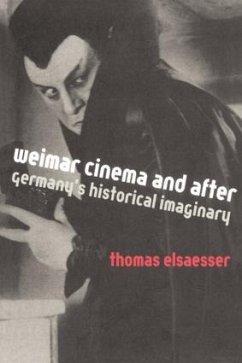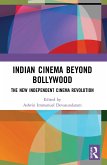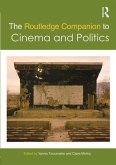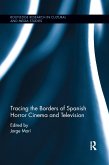German cinema of the 1920s is still regarded as one of the "golden ages" of world cinema. Films such as The Cabinet of Dr. Caligari, Nosferatu and The Blue Angel are among the key films defining an age of Germany as a nation uneasy with itself. Directors such as Fritz Lang, F.W. Murnau and G.W. Pabst, having apparently announced the horrors of fascism while testifying to the traumas of a defeated nation, cast long shadows over German cinema to this day. Weimar Cinema and After offers a fresh perspective on the arguments which view genres and movements such as "films of the fantastic", "Nazi Cinema", "film noir" and "New German Cinema" as typically German contributions to twentieth century visual culture. Elsaesser questions conventional readings which link these genres to romanticism and expressionism and offers new approaches to analyzing national cinema.








